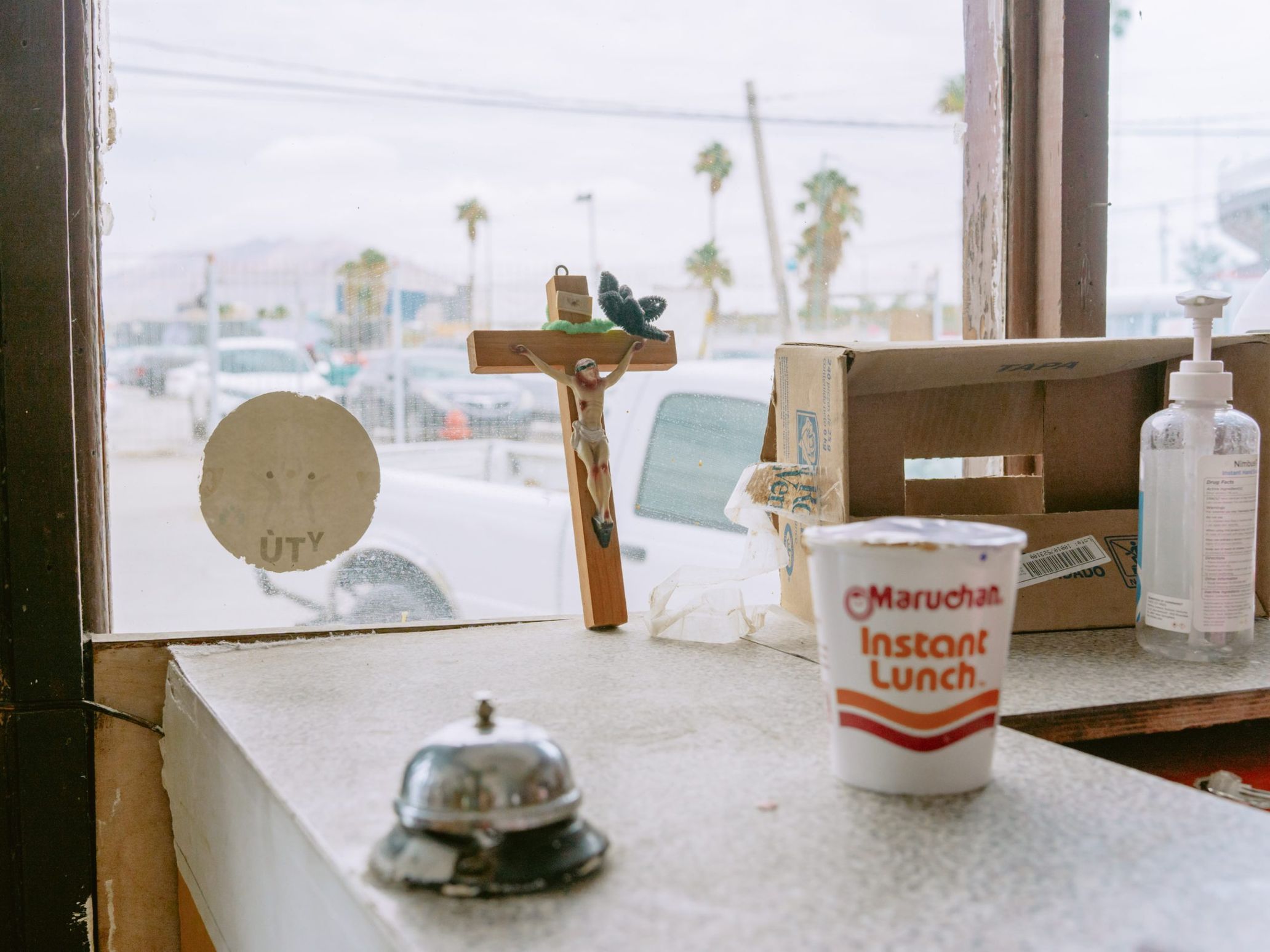
“Trump’s Wall” separates the U.S. and Mexico.
We tried to negotiate at the border, but knew it was a game we had almost zero chance of winning. The one we were talking to was not an immigration officer, but a gangster. We were standing on the border drawn just on the hillside of a mountain, and there was nothing like a fence or landmark but sparse cacti and bushes. Even if we get murdered here, we would probably end up being left behind a rock. What went through my mind then was the phrase I had heard several times, “The price of life is cheaper in Mexico.”
Speaking of the U.S.-Mexico border, the immigration issue has long been discussed. Headlines such as “Surge in Prospective Immigrants,” “Escape from Violence and Poverty,” and “Focus of Presidential Election” no longer seem fresh to many people. In fact, the “wall” separating the U.S. and Mexico (the so-called Trump Wall) does not cover all parts of the border lying east and west. We learned that there are some areas where there is not even a fence, let alone a wall. One such area is the mountains outside of Ciudad Juarez in northern Mexico. The mountain straddles the border, but no wall is built because it is private property. When we actually visited the foot of the mountain, we discovered a gap in the steel wall extending from the western horizon.
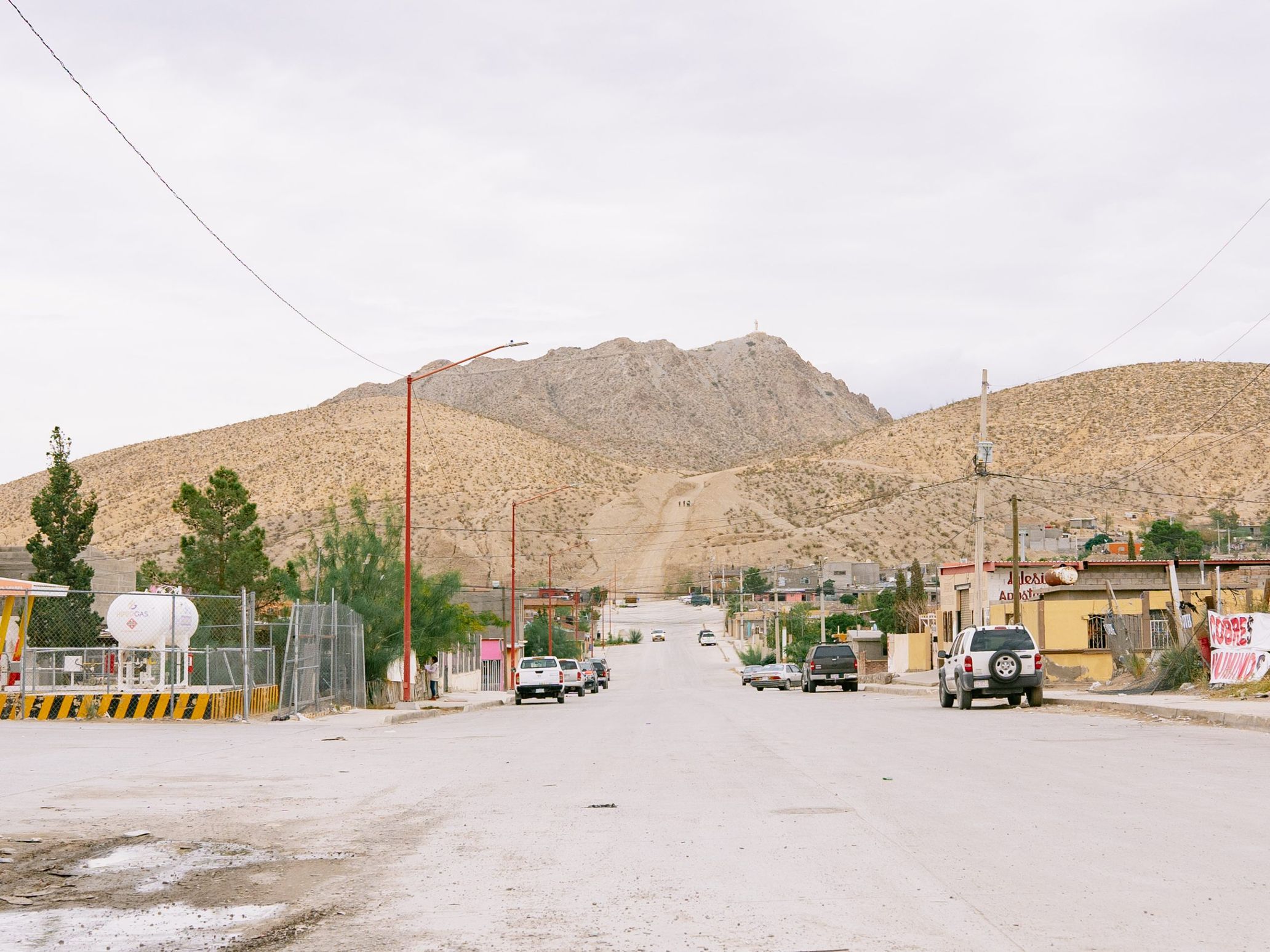
What lies beyond that point? I went on the mountain path with Maruo, the editor who was accompanying me. Soon after, we saw about 10 people walking in the hollows while trying to conceal themselves. They might possibly be migrants trying to cross the border. One of them approached me and asked, “Are you a police officer?” The man who asked me this turned out to be a gangster. He was a member of a smuggling agent called coyote that had this territory in hand. It is said that immigrant smuggling started as a side business for the drug cartels. Those who wish to cross the border need to pay them a lot of money. When we explained how we ended up here to him, the man picked up a wire at his feet and struck a pose as if he were going to strangle us. We backed away and said, “I get it, I get it,” and walked down the mountain with drawn faces.
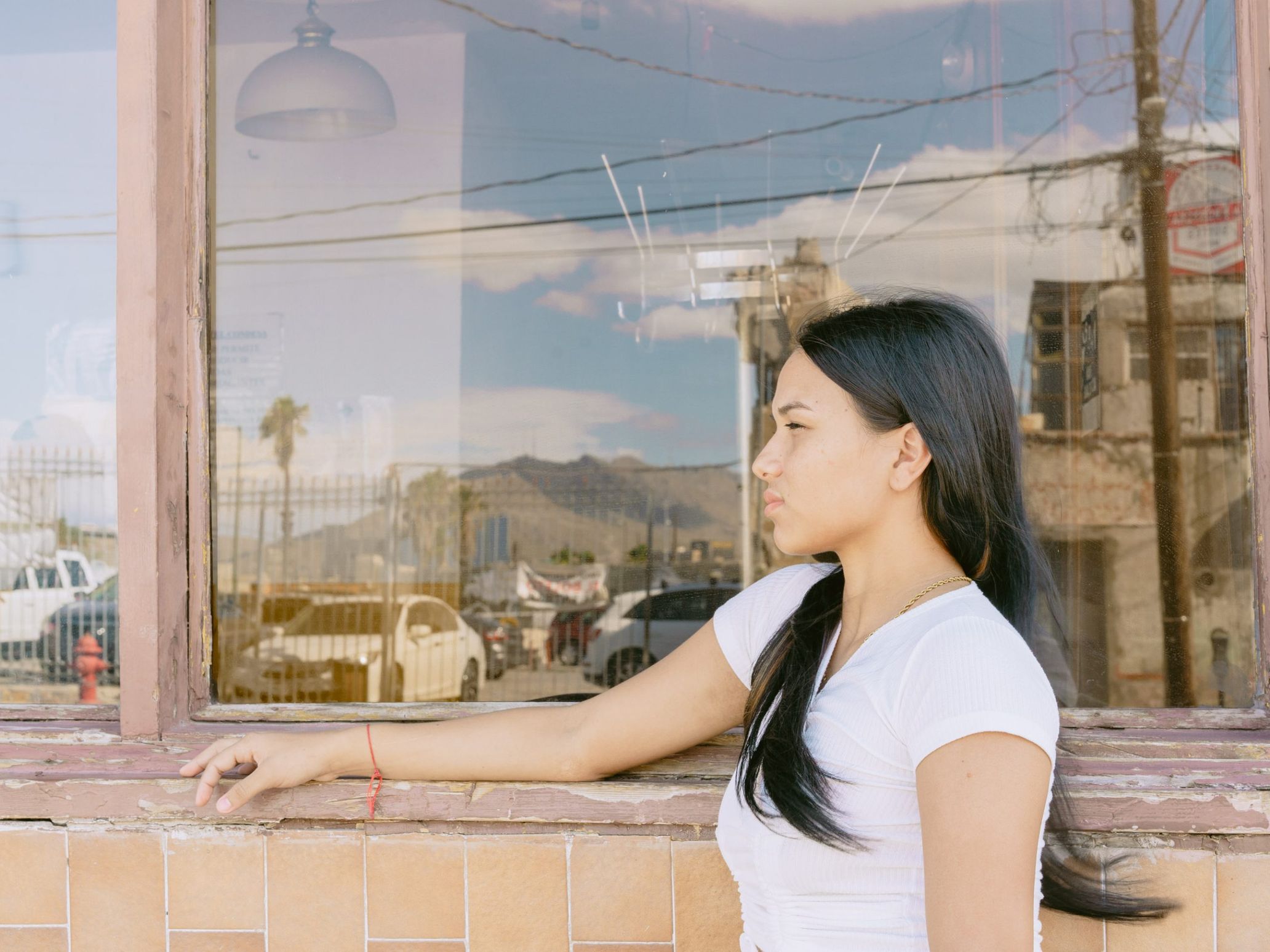
Two days later, we climbed the mountain again, this time from the American side. And we ran into the gang again. The story below follows the beginning of this column. Not only did we not learn from what we had experienced a few days back, but we were indeed ridiculous. What did we mean by “I get it, I get it”? In the first place, repeating the same words twice would be a sign of untrustworthiness. The guys we faced this time differed from those we met last time. They yelled at us, “Leave all of your U.S. dollars and Mexican pesos, plus your phones and cameras!” They were saying that if we did not comply, they would take us to the Mexican side. I wanted to buy time through negotiation, but I had only $25 in my wallet. This can never be the bargaining chip. I had no pesos on hand (my card was not accepted at the ATM) and explained I desperately needed a few dollars for the bus fare home, and they took $15 from me. When I showed them the dollars, albeit a small amount, the men forgot about the phones and cameras, and we were released. Well, how little the price of my life was. The money I had was stingy, but the amount I paid was even more stingy. Maruo, who had been quietly witnessing how things went and whom the gangster hadn’t demanded dollars from, said, “Shall we split the bill?” I appreciated the offer, but I declined because that would have cut the price of my life in half. I went down to the foot of the mountain and spent $5 on the bus to the border. There was only one $5 bill left. We had no choice but to return to Mexico.
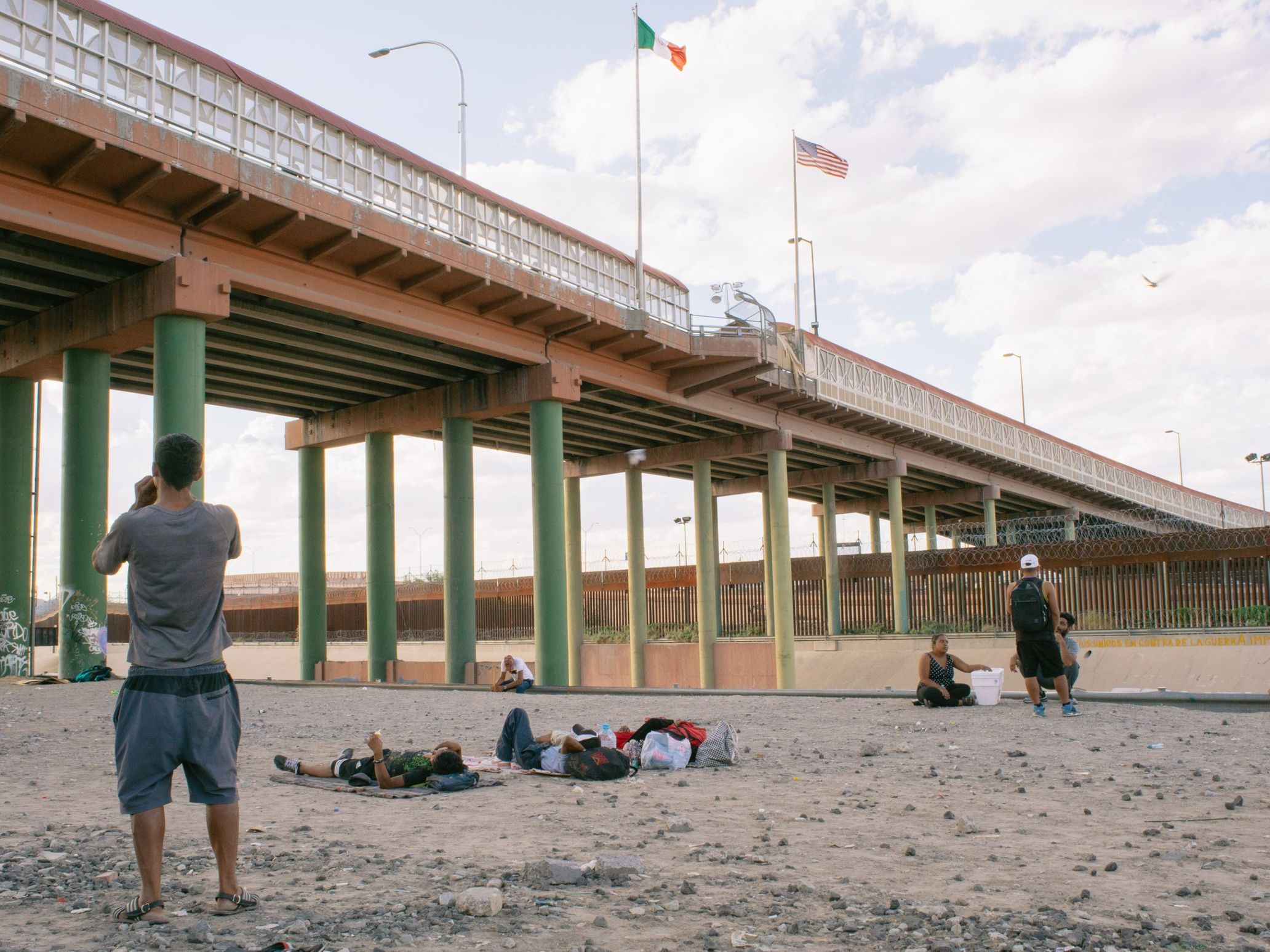
Locals were passing by on the border bridge. They cross the border to go to work or school. The city behind the wall is also a part of their sphere of life. Ciudad Juarez, which was once described as the most dangerous city in the world due to the drug war, now seems to be at peace. We returned to the Mexican side and walked along the border. Unlike the mountains we had seen earlier, iron walls and barbed wire were running across our view, and we could see border guards and armored vehicles watching us. Looking at them, I felt as if I were in prison. Scattered around the perimeter were rags of torn clothing, toothbrushes, and other household items. Following the trail, I found about 20 people hanging out under a bridge at the border. They were prospective immigrants, mostly young people from Central and South America. I had not noticed them when I crossed the bridge earlier, but it seems that they are camping out here.
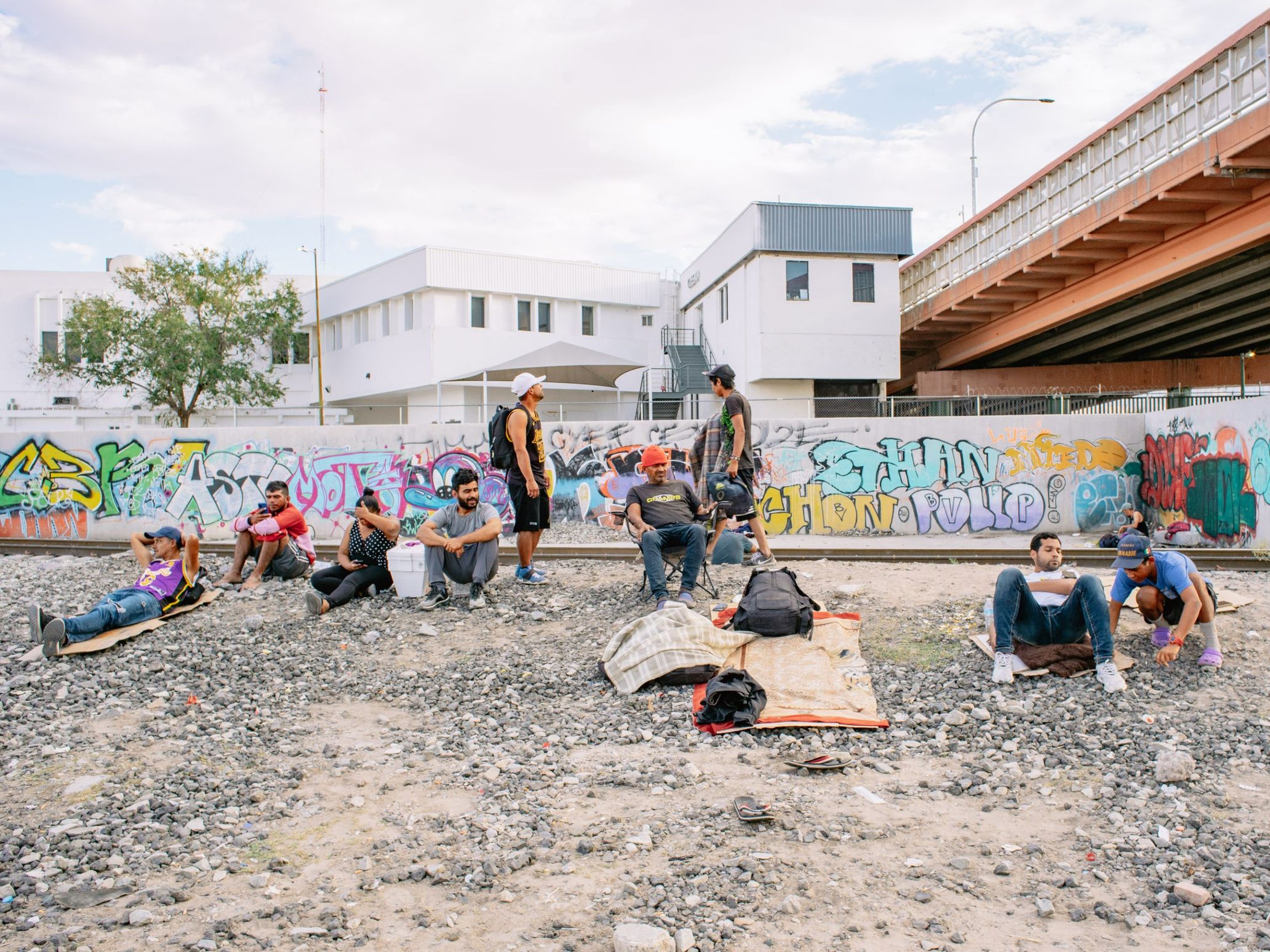
The reality of prospective immigrants at the US-Mexico border
A man named Tony spoke to me in fluent English. He is a well-dressed 54-year-old from Honduras. He has been living here for almost three months. Tony said, “There are no bosses or gangs here. Everyone is like family.” He seems to be a big-brother type of person as he is spoken to in a friendly manner by his peers and shares his fruits with them. “The Mexican people have been very supportive in providing food and clothing, but the Mexican police are no good. They always try to kick us out of here. We’re not monkeys or dogs,” Tony said, shaking his head. Because of their positions, the police make it seem like they are serious about getting rid of them, but it is not easy for them to go along with their empty posturing. As soon as the police leave, he said, they will come back here. “In Honduras, cops kill people easily,” he said, “because gangsters ask them to do it, and they want to make some money out of it. Compared to the situation there, this city is good. America would be even better,” he said, laughing.
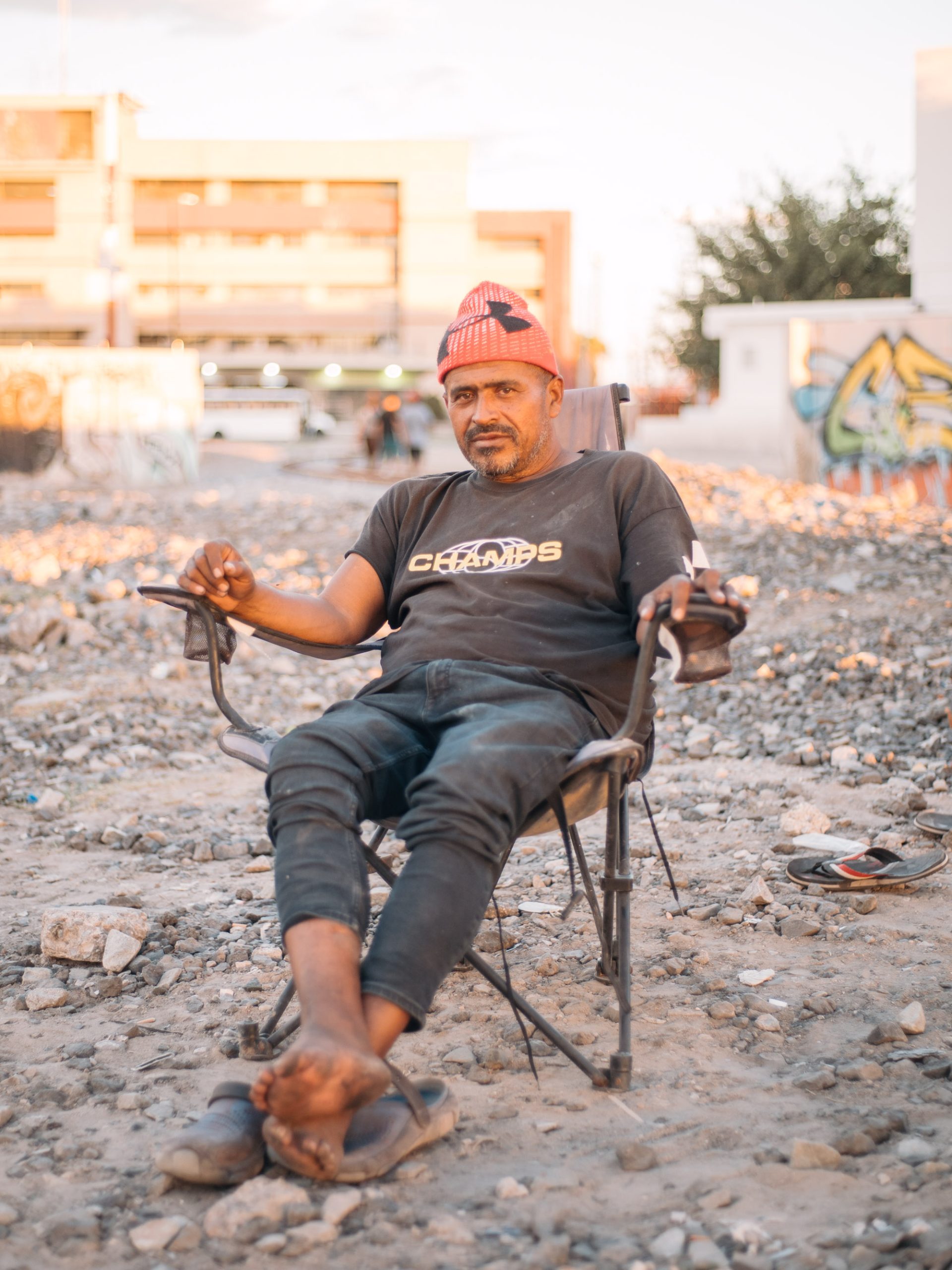
What is the purpose of their migration to the U.S.? When I ask them, the answer comes back as lightly as if I had thrown a ball at a wall. In the first place, we impose something undeniably heavy in the word “immigrant.” But in most cases, there is no reason to be surprised. They simply want to live a little better than they do now, and that’s what we hope for, too. The difference is their determination to take a chance, if there is a chance at all. Poverty, violence, and economic collapse. These circumstances probably make their will even stronger.
As the sun began to set, the young people hanging around started to run, shouting loudly. They looked up to see a passerby crossing the border bridge. “Give us a dollar, a peso, whatever! Give us money to eat!” After a few moments, the passerby stopped and dropped a bill through a gap in the railing. The bill drifted in the wind. A group of young people ran toward it. One of them jumped high and tried to grab it but failed. They struggled with each other, scattering a cloud of dust. The one who finally caught the bill just above the ground said to a passerby above him, “Gracias!”. Then another dropped another bill, which then flew in the wind.
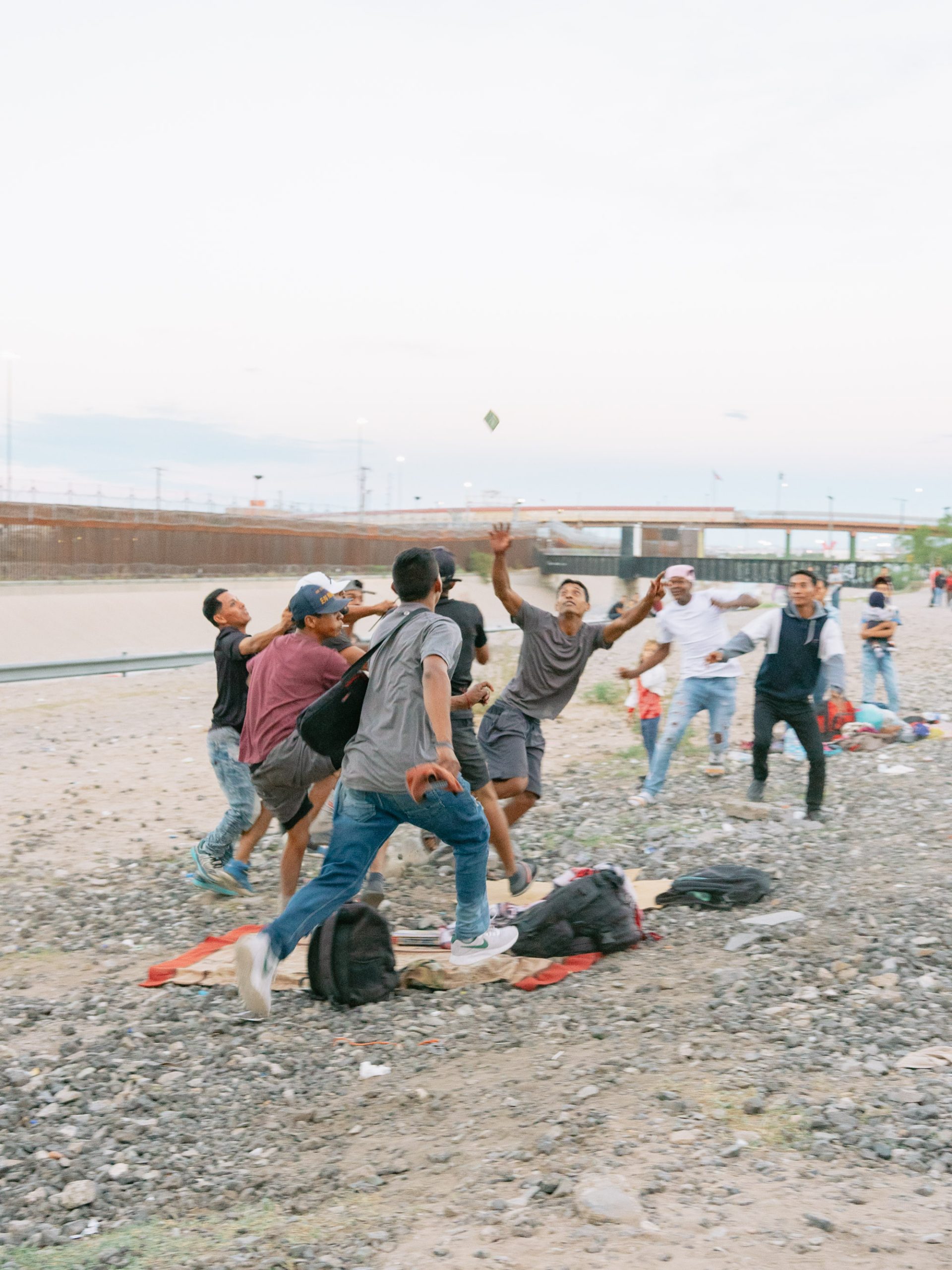
The people who drop the money seem to be Americans going back to their country after spending some time playing in Mexico, where prices are lower, or people from Mexico who have returned to their hometowns and are going back to the U.S. again. Quite a few dollar bills are mixed in with the bills that fall. I wonder if they do it out of guilt or altruism. Unfortunately, those who fail to catch on show their frustration, but maybe because how they bite their lips looks funny, the group sometimes burst into laughter. So I didn’t sense despair among them. Looking back at Tony, I see him perched and chilled out on the folding outdoor chair that he has brought out from somewhere. I don’t know whether it was an elder’s composure or a middle-aged man’s reserve, but I was impressed by how he was leisurely watching the young people.
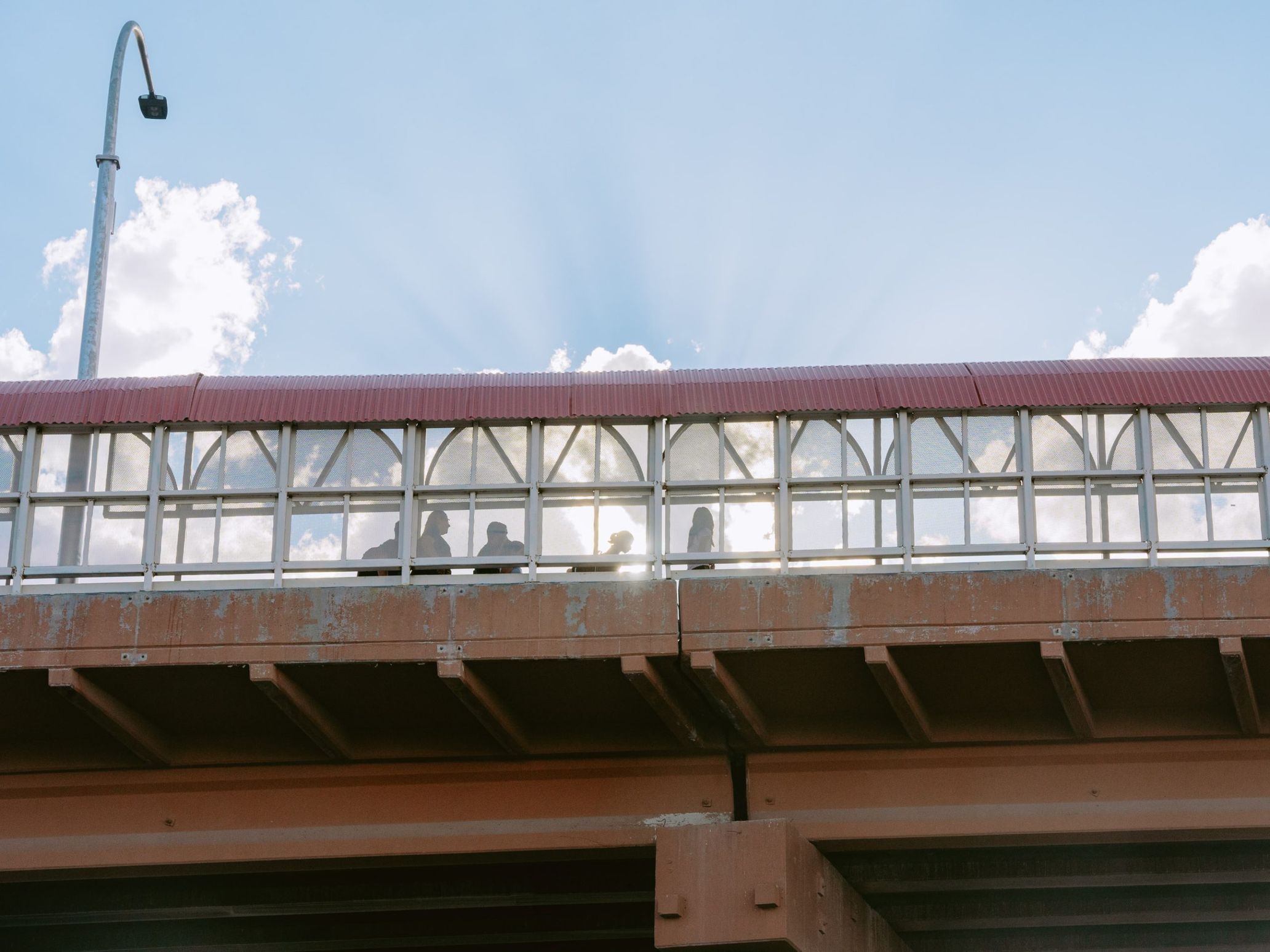
The next day, we went under the bridge again. I noticed a group of people we had not seen yesterday, watching us from a distance. “They must be newcomers,” Tony said with interest. I raised my hand in greeting, and one of them started talking to me. “We’re from Venezuela, and we finally arrived here today,” the fearless-looking man said happily as he smoked a cigarette. I tried to picture in my mind where in South America Venezuela was located. Colombia, Panama, Costa Rica, Nicaragua, Honduras, Guatemala, and Mexico. There are seven countries they had to pass through to cross into the United States. Although that was beyond my imagination, I understood why they did not seem to have a sense of urgency about them. They had finally arrived here. Maruo, who was talking with the young people, said, “They have already succeeded 90% of the time, haven’t they?” All that was left was the wall. But how would they get through the wall? I talked about the mountain where we found the gap in the barrier, but no one knew anything about it. When I asked them how they would get through, they unhesitatingly answered, “We will jump over it.”
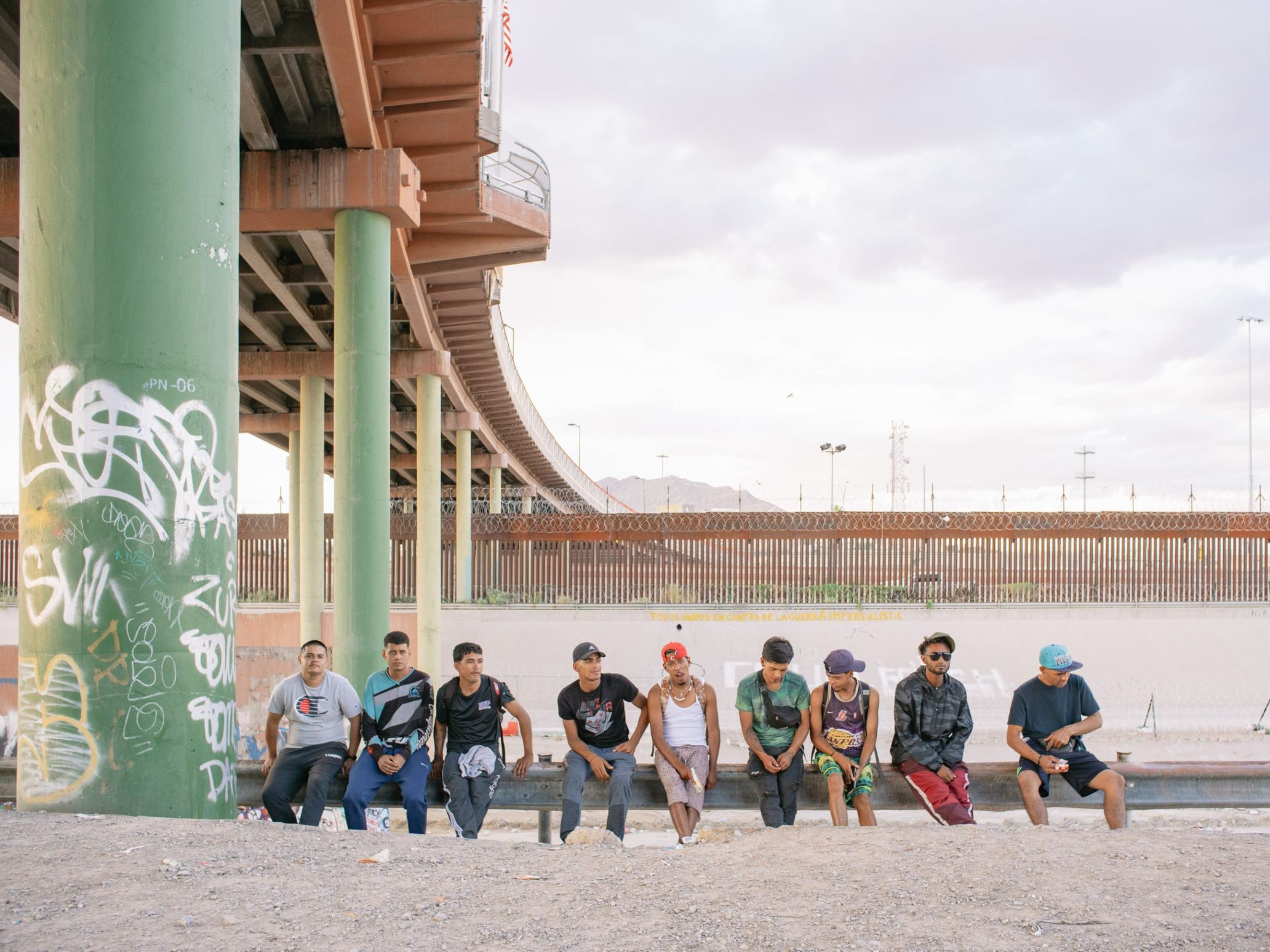
Tony took off his shoes and made himself at home. He has been here for three months even though he arrived all the way from Honduras. I wondered if he had already become comfortable in this city, so I asked, “When will you jump over the wall?” He instantly choked on his words. I was skeptical, but he halfheartedly said, “Look at that pipe! I may not be young, but I can move like a rat, crawl through holes, crawl up walls, and do anything else I want!” He pointed hurriedly to a drain that poured into the river, but from a distance, it was no more than 30 cm in diameter. I thought about his slumbering reaction. Given the long road they had traveled, it was only natural that they would be cautious. They cannot fail in this very last process. If I were him, I would be too frightened to do anything. Tony continued, as if to divert the conversation. “Just two days ago, a young Chinese man jumped over the wall. He made it!” He sounded as happy as if it were him. I’m not sure why Chinese people come here to smuggle themselves in. I thought it must be a misunderstanding since some people in Latin America look like people from the East with Indian heritage, and I didn’t listen to him seriously.
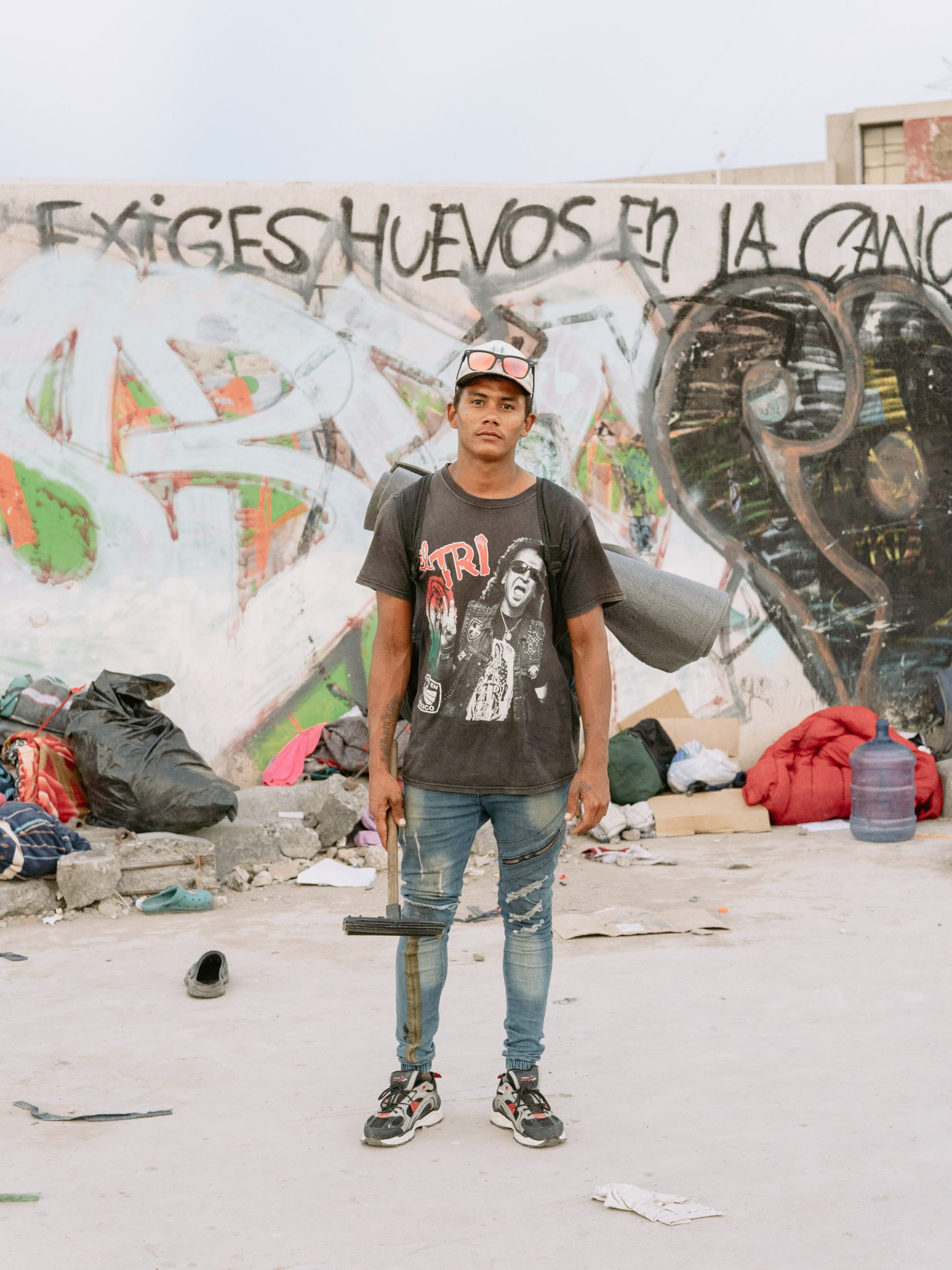
The man standing by me pointed to a passerby on the bridge, nodding in that person’s direction. He was like, “You do it too.” Unable to speak Spanish well, I waved my hands exaggeratedly and tried to appeal to the passerby for a while, but no money fell. The man snickered at my helplessness. The other man, who had grown tired of standing and raising his voice, began to lie down on the ground. He remained on his back and called out loudly to the people on the bridge above me. I lay down as well. It was uncomfortable, but the bridge offered the shade and a cool breeze blew. The smell of marijuana wafted through the air. As it began to get dark, more and more people started to “go home” under the bridge.
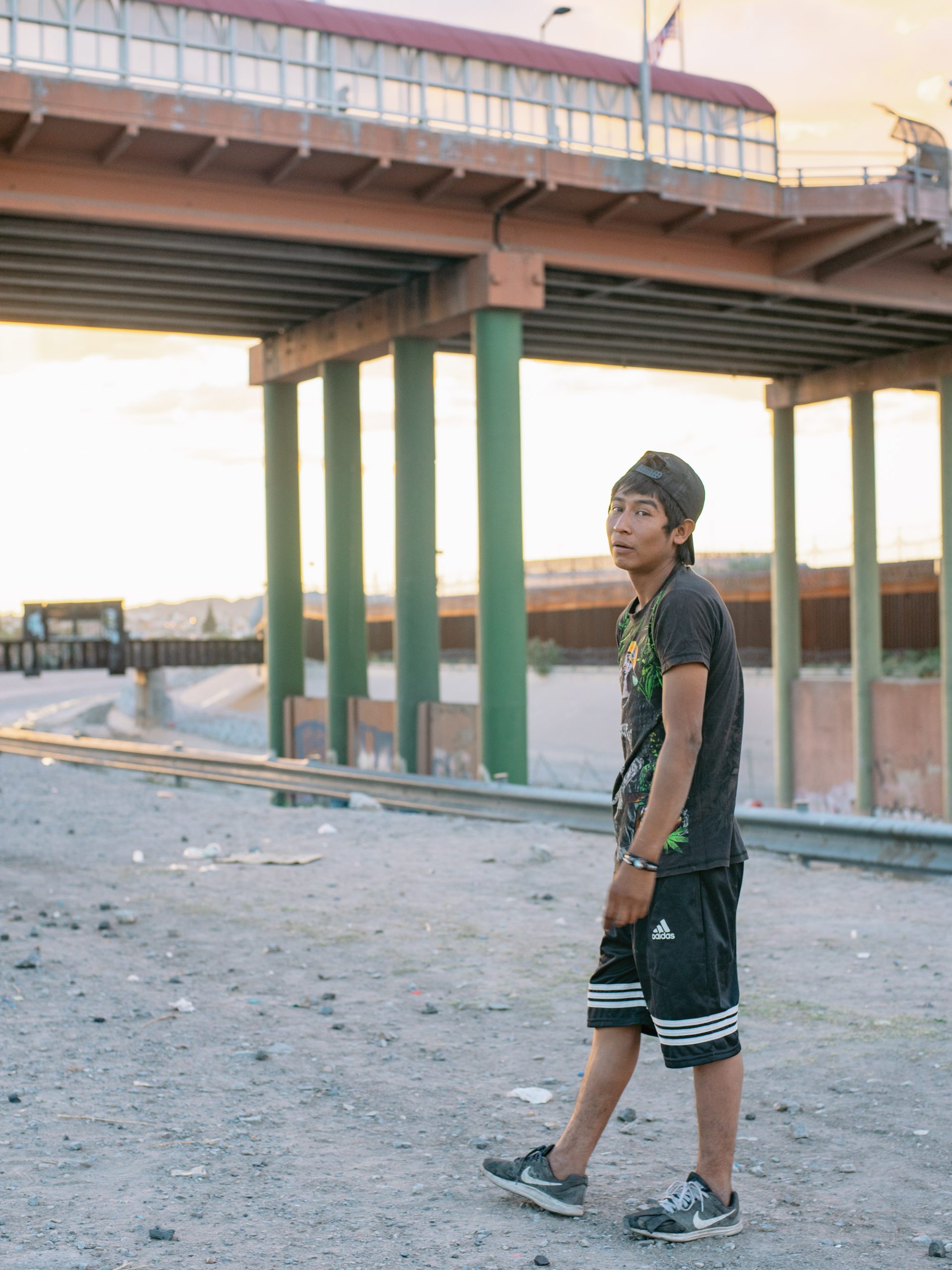
When I was leaving, I gave Tony the remaining $5.00 I had on hand as I shook his hand in farewell. It was an embarrassing amount for a farewell gift. He just said, “Thank you,” and didn’t even seem happy about it. It was no use giving him the money he could not use in Mexico, but hopefully, I wanted him to use it in the U.S.. Even if they could get over the wall, there are many checkpoints in the city center. It is just like a gamble as they have no idea whether their immigration application will be approved or whether they will be able to find work. Even if “the price of life is low,” it will be worth many times more if they continue to win the game. The young people running to grab the money are engraved in my mind’s eye.

